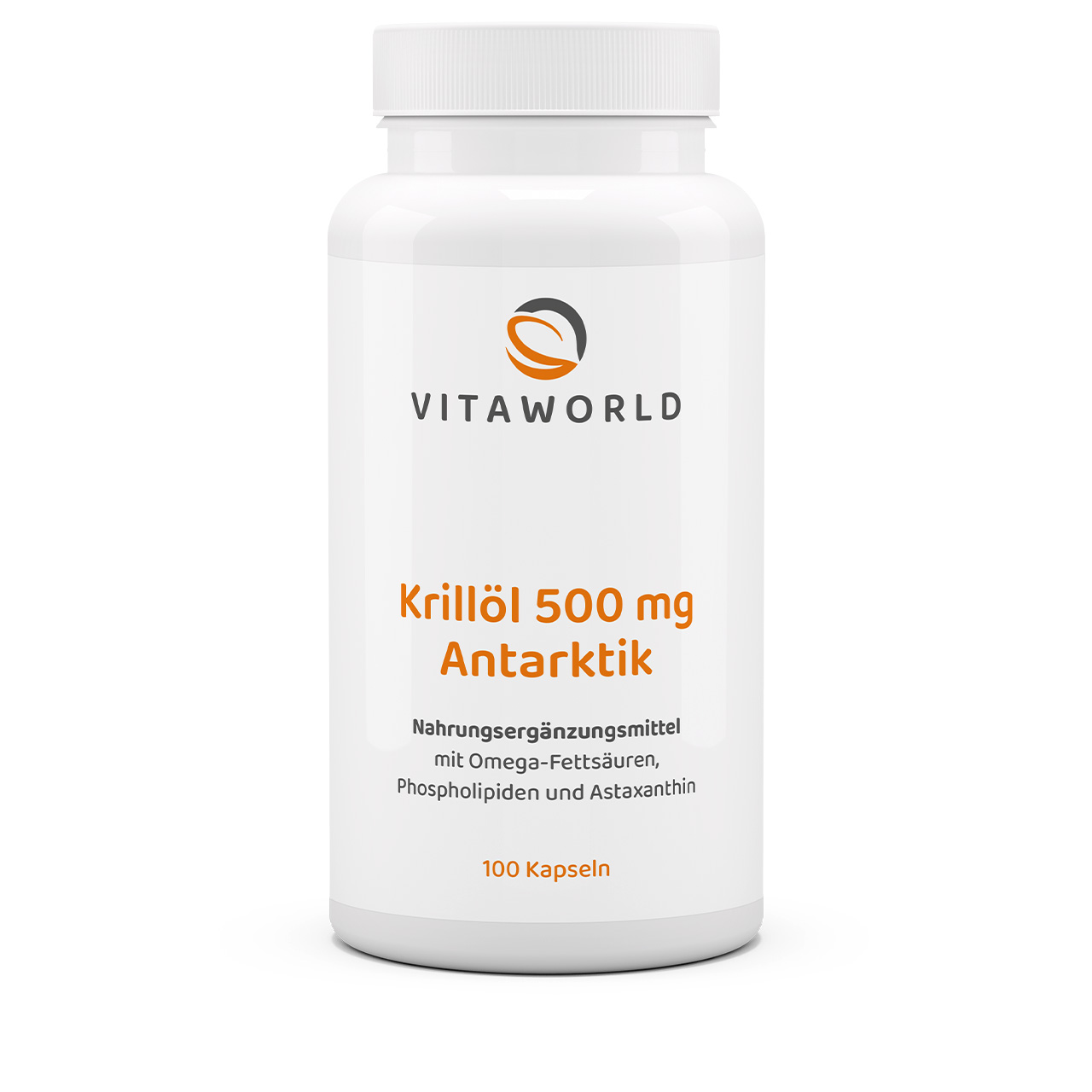Filter products

Krill Oil Antarctica 500 mg (100 caps)
- Superba™ krill oil with MSC certification – sustainably sourced from Antarctic krill
- With 200 mg omega-3 and 400 mg phospholipids – for optimal bioavailability
- Contains choline and astaxanthin – choline contributes to normal fat metabolism
Content: 0.072 Kilogramm (€345.83 / 1 Kilogramm)

Omega 3 vegan (120 caps)
- 625 mg of high-quality algae oil per capsule – with 250 mg of DHA from Schizochytrium sp.
- Purely plant-based & iodine-free – ideal for a sustainable supply of omega-3
- Gently processed & protected from oxidation – from controlled cultivation, not sourced from the sea.
Content: 0.0102 Kilogramm (€3,911.76 / 1 Kilogramm)
